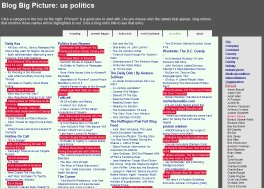Although he doesn’t describe it in linked data terms, a recent posting from Dean Allemang has some great suggestions for how to dive into a set of SPARQL-accessible data you know nothing about in order to find out what’s there. If there’s cool stuff in the data set, this is a lot of fun. (Also check out the recent Talking with Talis with Dean, where he describes many examples of semantic web technology helping large organizations solve very real problems.)
The first ever Linked Data conference, sponsored by Jupiter Media at New York City’s Roosevelt hotel last Tuesday and Wednesday, was great. I didn’t give any talks, but as co-chair I put together the program with Ken North and with his throat bothering him a bit I did most of the speaker introductions. I also moderated the Linked Data Workshop panel, a session that provided the audience with a good range of perspectives on some difficult Linked Data application development issues…
Anyone who follows the XML or semantic web world knows of Uche Ogbuji’s work. His presentation Linked Data: The Real Web 2.0. will be one of the first talks on the first day of the Linked Data Planet conference next week; as we prepare for it, I asked him a few questions about his work with Linked Data and the benefits its brought to clients of his company, Zepheira.
Storing information about the meaning of terms—their “semantics”—can make data more valuable. Critics of semantic web technology consider such talk to be pie-in-the-sky AI talk; how can you encode the real meaning of words? More importantly, how can you do it in a way that programs can read and use to solve real data problems?
I was sorry to miss the Semantic Web Technologies conference, but I had a very interesting time yesterday giving a talk at the New Horizons in Teaching and Research conference at the University of Virginia (so nice to go to a conference 25 minutes from my house) on Semantic Web technologies, RDF and OWL (and Linked Data). It was an audience of professors and researchers from a wide variety of disciplines who were all very open to hearing about how these standards could let them store metadata…


